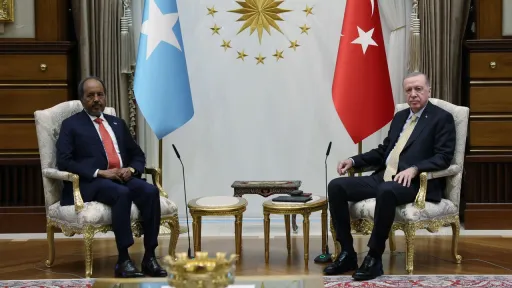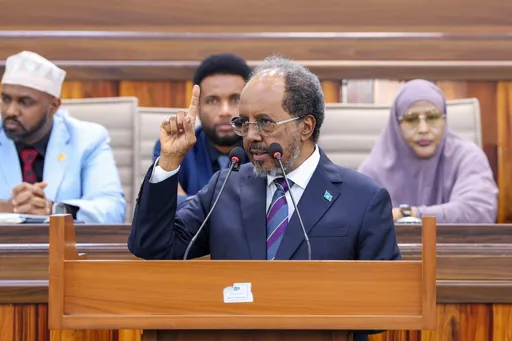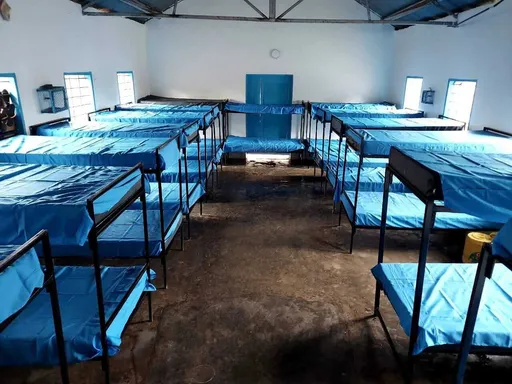By Hamza Kyeyune
Projects in Uganda worth almost US $2 billion are being held to ransom by the World Bank as it seeks to pressure the East African country into reviewing a new anti-LGBTQ+ law by freezing future funding.
Uganda has so far remained defiant in the face of what is being seen in the Christian-majority country as blackmail by a global lender adopting the moral high ground in a matter that has little to do with project funding.
The sparring started in May, when Uganda's President Yoweri Museveni signed into law the Anti-Sodomy Act which he staunchly defends as necessary to stop the sodomy trends from trying to "recruit" people.
The new law contains a provision for the death penalty to be pronounced in aggravated cases, which include same-gender sex with someone below the age of 18, or any such act that leads to someone contracting a lifelong illness, including HIV.
In my conversations with lawmakers and officials in Uganda, the overarching feeling was that the Washington DC-based global lender, of which the US is a key stakeholder, had exceeded its brief.
Uganda isn't the only country with anti-deviance laws “most African countries have them. So, why are they only targeting Uganda?" legislator Asuman Basalirwa, who moved the legislation, told me.
Basalirwa and others may have grounds to believe that the World Bank was looking for justification "to stop lending us money, and they are using this law merely as a reason to stop the funding".
The global lender's argument that Uganda's Anti-Sodomy Act “fundamentally contradicts the World Bank Group's values" appears to indicate that it wants Ugandans to first seek American consent before any law is enacted in the East African country.
The global lender had provided $5.4 billion in International Development Association (IDA) financing to Uganda by the end of 2022, including for many health and education projects that could get affected by its response to the anti-heresy law.
The American hand
The US, which has almost always had someone from the country officiating as the president of the World Bank, has been right behind the lender when it comes to arm-twisting Uganda. America has already imposed travel restrictions on Ugandan officials in response to the anti-homosexuality legislation.
The East African country's retort comes as no surprise. It has dismissed the move as a typically hypocritical response by the US, saying that "the World Bank has been put under pressure by the usual imperialists".
Kampala's defiance despite billions of dollars’ worth of funding being at stake stems from the legislation enjoying broad support in the conservative Christian-majority country, where lawmakers have consistently defended the anti-sodomy measures as a necessary bulwark against alleged Western immorality.
There also seems to be a contest in the classification of what the US, and by extension the World Bank, defines as human rights.
Legislator Basalirwa accuses the World Bank of double standards, wondering why presumed homosexuality rights are getting precedence over actual human rights violations wrought by others on Ugandans.
"The World Bank remained silent over the years. Why do they want to make the whole world assume that homosexual rights are superior, and therefore, if a law comes to limit those rights, everybody should be up in arms," he told me.
World Bank’s coercion
Many Ugandans deem the World Bank's decision to use funding as leverage to impose its will on them as an attack on the country's legislative sovereignty. There is a consensus that the law was a choice Ugandans made by speaking through their legislators.
The public mood is reflected in Uganda's ambassador to the United Nations, Adonia Ayebare, calling the World Bank's move "super draconian". He believes it is time for the lender to rethink its professional methods and the board's decisions.
Uganda's state minister for foreign affairs, Okello Oryem, may have hit where it hurts when he pointed out that the World Bank was being hypocritical.
‘’In the US, many states have passed laws that are either against or restrict activities of homosexuality. So, why pick on Uganda?"
There is no denying that the World Bank's actions could be injurious to the Ugandan economy in the short-term.
I came back from a chat with Dr Fred Muhumuza, an expert on policy research, with the ominous insight that if the World Bank halts loans for an indefinite period, a web of things could be affected.
"We can live without loans by reviewing our expenditure, and the projects we want to undertake in the meantime, while also exploring other sources of income," Dr Muhumuza told me.
Most of the sentiments expressed by officials and experts are nothing new. The idea has always been that as an alternative to borrowing, African countries should finance their infrastructure needs by raising domestic taxes. That time is now.
The author, Hamza Kyeyune, is a Communications Specialist and seasoned Ugandan journalist.
Disclaimer: The viewpoints expressed by the author do not necessarily reflect the opinions, viewpoints and editorial policies of TRT Afrika.
























